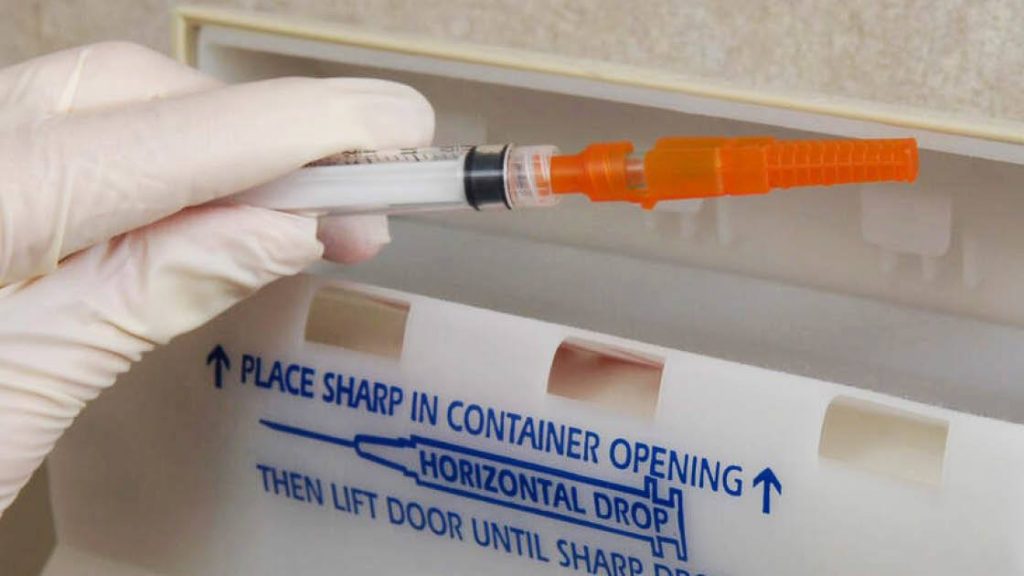-
Get to the point: Proper disposal of sharps

"Sharps" is the term used to describe any device with a sharp point or edge that could cut your skin. This includes needles, syringes, infusion sets, lancets (sometimes called "fingersticks") and auto-injectors, like EpiPens.
There are many reasons why you may have sharps in your home. They are used to manage many different health conditions, including allergies, arthritis, cancer, diabetes, HIV/AIDS, infertility, blood clotting disorders and psoriasis.
It's important to correctly dispose of sharps to protect yourself and others. Sharps thrown into the trash, recycling bin or flushed down the toilet can lead to accidental needlesticks or injure sanitation workers and the community.
The good news is that it is easy to correctly dispose of sharps with some planning. Follow these tips:
- Do not throw loose needles, syringes, lancets or any sharps in the trash or recycling.
- Purchase a designated medical sharps container from a pharmacy or home health provider. It should be heavy plastic or metal with a puncture-proof, tight-fitting lid.
- If needed, a heavy plastic jug with a screw top, such as a laundry detergent bottle, can be used. Write "Do not recycle" and "Sharps" on the container with a black permanent marker. Do not use clear or plastic containers, coffee cans, milk jugs, aluminum cans or soda cans.
- Place the container near where you use medical sharps, so you don't need to carry a used sharp across your home for disposal.
- Keep the container out of reach of children and pets.
- Always wash hands after touching or handling medical sharps.
- Do not overfill the container. This can increase pressure and cause the lid to pop off.
- When filled, seal the lid with heavy-duty tape, such as electrical or duct tape.
When away from home, look for sharps containers in public restrooms at restaurants, airports, highway rest areas and clinics.
You should drop off full sharps containers at local sharps collection stations. Some are free, while others may charge a small fee.
There also are sharps mailing services available. Companies provide a sharps container and a return shipping label for a fee. You ship back the container when full. This service could be a good option if there aren't collection stations near your home or you have mobility concerns and unreliable transportation.
Talk with your health care team if you have questions about the best way to dispose of sharps in your home safely.
Jill Christensen is a nurse practitioner in Family Medicine in Waterville, Minnesota.
Related Articles







